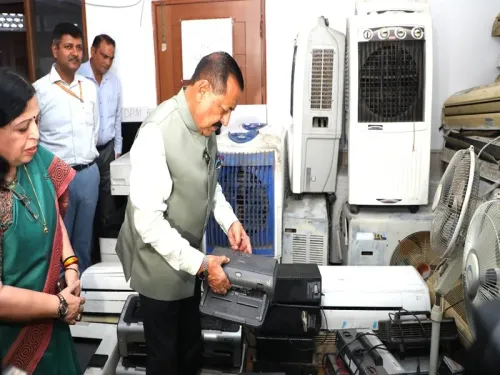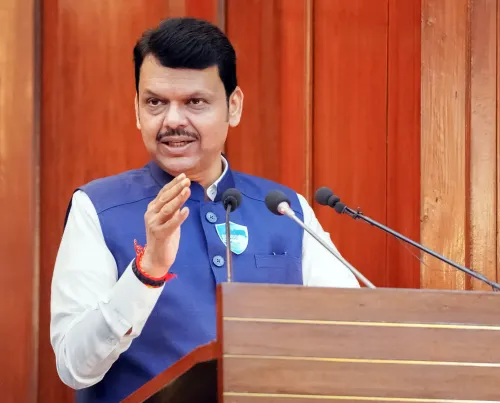What Global Actions on Chemicals and Waste Did Bhupender Yadav Advocate at BRS COPs 2025?

Synopsis
Key Takeaways
- Global action is essential for effective chemicals and waste management.
- Access to finance and technology is vital for implementing BRS Conventions.
- India's legislative framework supports sustainable environmental practices.
- Collaborative efforts can enhance international environmental governance.
- Minister Yadav's commitment to multilateral cooperation is evident in India's initiatives.
New Delhi, May 2 (NationPress) - The global community must unite for action on chemicals and waste, emphasized Union Minister of Environment, Forest and Climate Change, Bhupender Yadav, during the Conference of the Parties (COPs) to the Basel, Rotterdam, and Stockholm (BRS) Conventions. Yadav is at the helm of an Inter-Ministerial delegation from India participating in the BRS COPs 2025, convened in Geneva from April 30 to May 1.
This year’s high-level segment is themed “Make visible the invisible: Sound management of chemicals and wastes.”
Yadav stated, “The successful implementation of the BRS Conventions hinges on access to finance, technology transfer, capacity-building, technical assistance, and enhanced international cooperation.”
He highlighted India’s comprehensive approach to executing the conventions via national legislation, including the Environment (Protection) Act, the Hazardous and Other Wastes (Management and Transboundary Movement) Rules, and the E-Waste Management Rules, 2016. These endeavors “are bolstered by ongoing investments in institutional and technical infrastructure,” affirmed the Union Minister.
On the sidelines of the COPs, Yadav also engaged in a consultation meeting hosted by Norway regarding the Intergovernmental Negotiating Committee (INC) on plastic pollution.
He informed attendees of India’s domestic measures, such as the prohibition of specific single-use plastic items and the application of Extended Producer Responsibility (EPR) for plastic packaging.
Yadav further highlighted India’s leadership in global environmental governance, pointing out that the nation introduced a resolution on single-use plastics at UNEA-4, placing the topic at the forefront of international dialogue.
The Environment Minister also conducted a bilateral discussion with Katrin Schneeberger, Director of the Federal Office for the Environment in Switzerland.
They deliberated on crafting a legally binding international framework for plastic pollution, and India’s endorsement of establishing a science-policy panel on chemicals and waste, as mandated by UNEA resolutions.
“India is unwavering in its dedication to multilateral environmental collaboration and will persist in advocating for the interests of developing nations while promoting equitable, science-driven, and sustainable solutions for our planet,” concluded the Minister.









